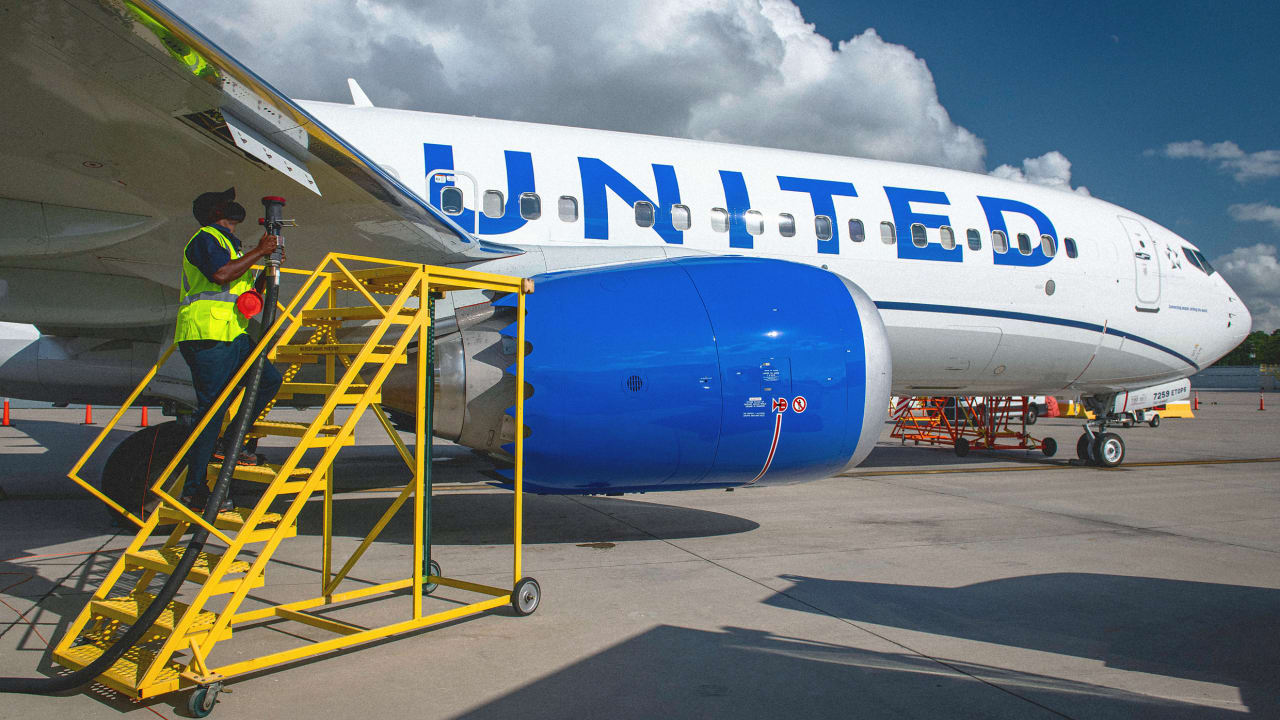
The first passenger flight powered by 100% sustainable fuel just took off
United just ran a test flight with a fuel made from fats, cooking oils, and grease that results in 80% fewer emissions than regular jet fuel. Now it’s up to the government to allow it on commercial flights.


